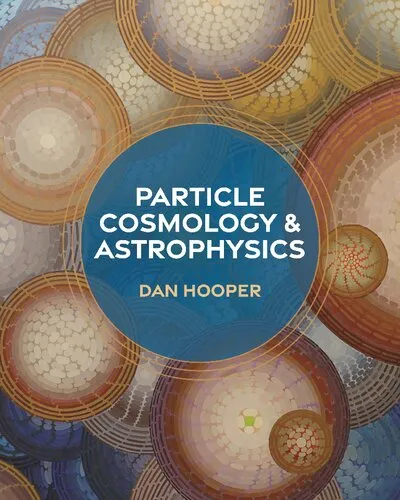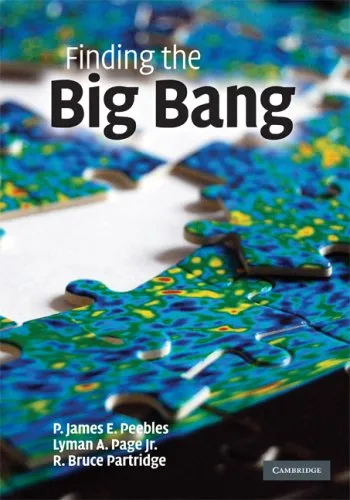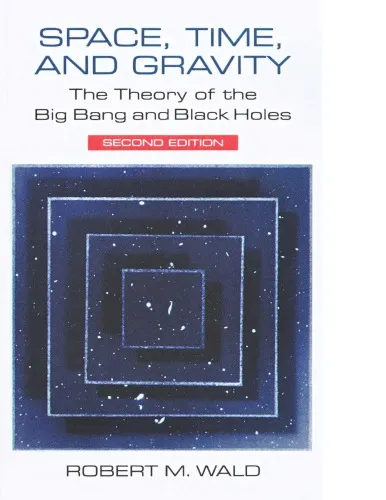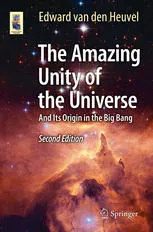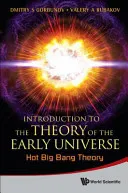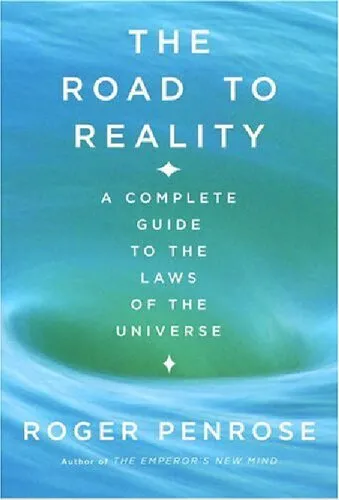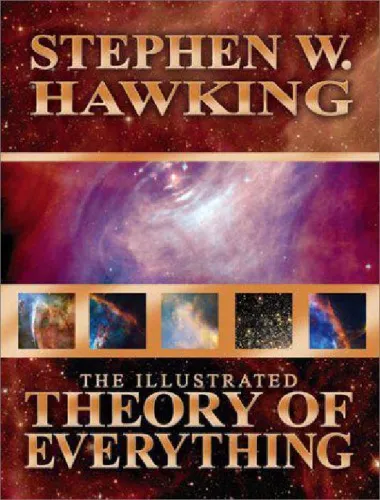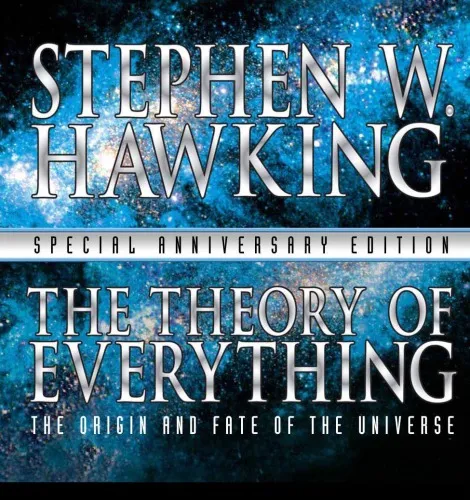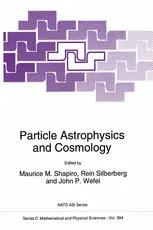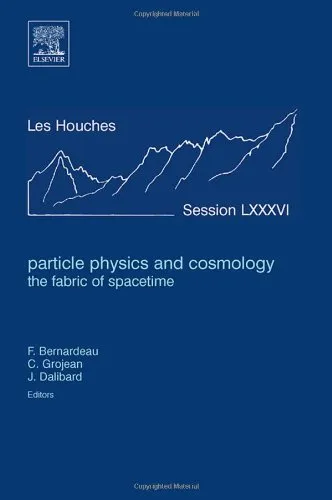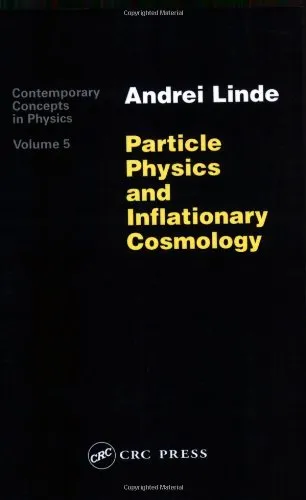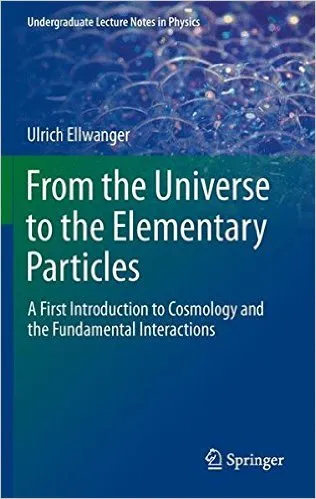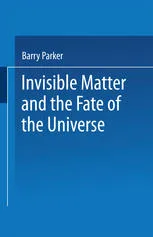Particle Cosmology and Astrophysics
4.5
Reviews from our users

You Can Ask your questions from this book's AI after Login
Each download or ask from book AI costs 2 points. To earn more free points, please visit the Points Guide Page and complete some valuable actions.Related Refrences:
Introduction
"Particle Cosmology and Astrophysics" is an engaging and comprehensive exploration of the intersection between particle physics, cosmology, and astrophysics. Authored to bridge the gap between theoretical physics and observational discoveries, this book takes readers on a journey through the fundamental questions about the universe's origins, structure, and its ultimate fate. By combining robust scientific insights with an accessible narrative, this work provides an in-depth understanding of how particle physics contributes to our broader comprehension of the cosmos.
Written for students, researchers, and anyone with a passion for understanding the universe, this book delves into the intricate questions of dark matter, dark energy, the Higgs boson, the early universe's evolution, and much more. The aim is to make the intricate language of high-energy physics approachable for non-specialists while still offering technical depth for scholarly readers. With up-to-date research, theoretical models, and observational evidence as of 2023, "Particle Cosmology and Astrophysics" serves as a guiding reference for anyone eager to explore the crossroads where particle physics enhances and reshapes modern cosmology and astrophysics.
Detailed Summary of the Book
The book starts by delving into the building blocks of matter, introducing concepts such as elementary particles, the Standard Model, and how particle physics experiments have revealed the nature of subatomic interactions. From there, it transitions seamlessly into the realm of cosmology, examining the universe's birth and evolution through phenomena like the Big Bang, cosmic inflation, and the cosmic microwave background radiation.
A significant portion of the text explores dark matter and dark energy. What are these mysterious components that dominate the universe, and how do particle physicists contribute to their study? By addressing this question, the book tackles tools such as weakly interacting massive particles (WIMPs), axions, and neutrinos, presenting the leading-edge efforts to detect and understand these elusive entities.
Additionally, the author discusses groundbreaking discoveries like the Higgs boson and their ramifications for cosmology and astrophysics. Gravitational waves, black holes, and quantum field theory are intricately tied to our understanding of cosmic phenomena, and the book illuminates how these elements interweave fundamental physics with astronomical phenomena.
As the chapters progress, readers will also explore topics such as baryogenesis, symmetry breaking, and the potential multiverse theories. The narrative uniquely combines observational data from telescopes and detectors with theoretical models, presenting a balanced view of what we know and the exciting mysteries that remain unsolved.
Key Takeaways
- The interplay between particle physics experiments and astrophysical observations is crucial to understanding the universe.
- Dark matter and dark energy remain the greatest mysteries of modern science, but theoretical advancements and experimental efforts are making progress.
- Understanding phenomena such as inflation, cosmic microwave background radiation, and the Higgs boson offers profound insights into the early universe.
- Recent discoveries in gravitational waves and black holes reveal that the cosmos is deeply integrated with quantum processes.
- Theoretical constructs, including symmetry breaking and the multiverse, challenge and expand the limits of human imagination about the cosmos.
Famous Quotes from the Book
"The universe is not just a passive backdrop for matter and radiation but an active participant in its own evolution, governed by the same laws of physics that govern particles as small as quarks."
"Understanding the unknown requires us to dare into uncharted territories, where particle colliders and space telescopes converge to enlighten the darkness."
"In the smallest particles, we find the seeds of the cosmos, and in the vastness of the cosmos, we uncover the story of these particles."
Why This Book Matters
"Particle Cosmology and Astrophysics" stands out as a cornerstone work in an era when bridging the disciplines of particle physics, cosmology, and astrophysics has become imperative for answering fundamental questions about existence. The book matters not only to scientists and students in these fields but also to anyone driven by curiosity about the universe's origins and fate. The book's ability to contextualize complex theories within the framework of observable phenomena makes it a remarkable educational tool.
Beyond that, the author's approach instills a sense of wonder, reminding us that science is a continuous journey of exploration and discovery. By emphasizing the interconnectedness between particle physics and large-scale astronomy, this work confronts some of the most profound unknowns in the universe, inspiring the next generation of thinkers to further our understanding of reality.
Whether you're a seasoned physicist, a curious student, or simply someone passionate about the mysteries of the cosmos, "Particle Cosmology and Astrophysics" promises to enlighten, challenge, and inspire you.
Free Direct Download
You Can Download this book after Login
Accessing books through legal platforms and public libraries not only supports the rights of authors and publishers but also contributes to the sustainability of reading culture. Before downloading, please take a moment to consider these options.
Find this book on other platforms:
WorldCat helps you find books in libraries worldwide.
See ratings, reviews, and discussions on Goodreads.
Find and buy rare or used books on AbeBooks.
1161
بازدید4.5
امتیاز0
نظر98%
رضایتReviews:
4.5
Based on 0 users review
Questions & Answers
Ask questions about this book or help others by answering
No questions yet. Be the first to ask!
